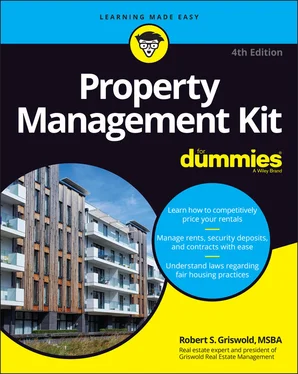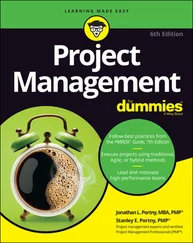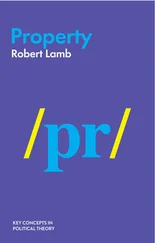Check references, particularly the company’s other clients. Don’t sign a management contract until you feel confident that the company you hire has a sound track record. Checking with the company’s chosen referrals isn’t enough; also ask for a list of all its current and past clients, and contact the ones with rental properties similar in size and type to your own. Make certain that the rental owners you contact have been with the company long enough to have a meaningful opinion of the quality of the service and are truly unbiased.
The quality of your property management company directly affects the success of your real estate investments and your peace of mind. Visit the company’s office prepared to discuss these important questions:
Can you give me a breakdown or list of what management services you provide and a breakdown of management fees/costs?
Is your firm an AMO recognized by IREM?
Is your firm an active member in good standing with a local affiliate of the National Apartment Association (NAA), and does it hold any NAA designations?
Is your firm an active member in good standing with the National Association of Residential Property Managers (NARPM), and do any of its property managers hold NARPM designations?
Are your legally required state and/or local licenses current and without any history of violations?
Do you carry errors and omissions coverage of at least $500,000, plus general liability coverage of at least $2 million?
Do you have a $500,000 fidelity bond and a forgery and alterations policy of at least $25,000 for all employees?
Do you have separate bank trust accounts for each client rather than a single master trust bank account containing multiple owners’ funds?
Can you communicate via email with your clients, your contractors/suppliers, and your tenants to be responsive and efficient, providing excellent customer service?
Do you retain copies of all written communications and maintenance or service requests in case a tenant were to file a claim or lawsuit, so that you can prove in court that you responded in a timely and proper manner?
Can you explain your methods of advertising or generating interest in my rental property and of selecting tenants in compliance with all fair-housing laws?
How do you screen prospective tenants? Do you use an outside firm? Who pays for the service, and how much does it cost?
Do all funds that you collect from applicant screening fees, tenant late charges, and other administrative charges go directly to the owner, not the manager?
Do you provide 24/7/365 on-call maintenance services through a live person who answers the calls and also has email capability?
Whether you provide maintenance in-house or use an affiliated firm, do you charge only the actual cost of labor and materials, without any surcharges, markups, administrative fees, and other such add-ons?
Do you pass along any volume-purchasing discounts fully and directly to clients for appliances, carpeting, and other items, without any markups?
If allowed by law, do you give all employees screenings that include thorough credit and criminal-record background checks by an independent employment screening consultant, as well as drug and alcohol testing by a certified lab?
Can I contact several of your current and former clients who own rental properties that are similar in type, size, and location to mine?
If at all possible, also try to secure a meeting with the person who would have control of the day-to-day, hands-on management of your property so that you can ask these questions:
How many years have you been in the property management business? Do you manage real estate exclusively?
What are your qualifications? Do you hold IREM’s CPM or ARM certification? Do you hold NARPM designations such as Residential Management Professional (RMP) or Master Property Manager (MPM)? Have you earned NAA credentials such as Certified Apartment Manager (CAM) or Certificate for Apartment Maintenance Technician (CAMT)?
How many other properties does your company manage? How many properties does the manager assigned to my rental property manage? Where are these properties located? Can I contact any of your current clients as references?
 When you hire outside property managers, treat them as valued members of your management team, but be sure that they know you’re the team manager and understand your long-term goals. If you’re looking for appreciation and preservation of your rental property’s value, make sure that the company keeps your property in great condition and looks for stable, long-term tenants rather than premium rent from short-term rentals. The manager should ask before spending significant amounts of your money, of course, and they should keep you informed on a regular basis.
When you hire outside property managers, treat them as valued members of your management team, but be sure that they know you’re the team manager and understand your long-term goals. If you’re looking for appreciation and preservation of your rental property’s value, make sure that the company keeps your property in great condition and looks for stable, long-term tenants rather than premium rent from short-term rentals. The manager should ask before spending significant amounts of your money, of course, and they should keep you informed on a regular basis.
Compensating your property manager
Management companies are compensated in a variety of ways, and the types of fees and typical compensation vary widely throughout the country. In addition to a percentage or flat monthly fee, a firm may charge leasing fees, as well as fees for copies, postage, reports, court appearances, coordinating maintenance, getting bids, supervising capital improvements, and so on. Ask about these extra fees, and make sure that you fully understand the compensation of your property manager. But never evaluate the management company based on the management fee alone as a management company that competes on the lowest fees while certainly take shortcuts or assign way too many properties to each property manager, as the costs and overhead of a top property management firm are high.
WATCH THOSE REPAIR BILLS!
Most management contracts contain clauses that allow property management companies to perform emergency repairs up to a specified dollar amount without advance approval from the owner. This clause allows the company to take care of problems that occur unexpectedly. When you’re in the early stages of working with a new management company, make sure that you monitor its expenses closely. Even though it may have the legal right to use funds up to a certain amount, the company should always keep you informed. “No surprises” is one of my favorite sayings!
Repairs serve as a profit center for many management companies. They may offer very low property management fees, knowing that they’ll make them up through markups on repairs, and often, the repairs aren’t necessary. Look for a property management firm that doesn’t mark up materials, supplies, or maintenance labor, or one whose fees for such work you consider to be fair and equitable.
Discovering how property management companies charge
The typical professional management fees for single-family homes and individual rental condominiums are 8 to 10 percent of the collected income, with an additional fee earned each time the unit is rented. The rental fee can be a flat fee that ranges from $250 to $500 or a percentage of the monthly rental rate, such as 50 to 100 percent. If the rental home or condo has a high rental value, the management fee is often lower, in the range of 6 to 8 percent.
 When a property manager considers how much to charge you, they typically look at the following pieces of information:
When a property manager considers how much to charge you, they typically look at the following pieces of information:
The amount of time required to manage the property: An experienced property management company owner knows the average number of hours the property manager, accounting staff members, and other support personnel will spend each month on managing your property. Then the company calculates a management fee schedule that should generate the fees necessary to provide the resources to manage your rental units properly and effectively. If you have large rental properties, management fees typically don’t include the services of an on-site manager, superintendent/maintenance technician, or caretaker; these employees are paid separately and are always an owner expense.
Читать дальше

 When you hire outside property managers, treat them as valued members of your management team, but be sure that they know you’re the team manager and understand your long-term goals. If you’re looking for appreciation and preservation of your rental property’s value, make sure that the company keeps your property in great condition and looks for stable, long-term tenants rather than premium rent from short-term rentals. The manager should ask before spending significant amounts of your money, of course, and they should keep you informed on a regular basis.
When you hire outside property managers, treat them as valued members of your management team, but be sure that they know you’re the team manager and understand your long-term goals. If you’re looking for appreciation and preservation of your rental property’s value, make sure that the company keeps your property in great condition and looks for stable, long-term tenants rather than premium rent from short-term rentals. The manager should ask before spending significant amounts of your money, of course, and they should keep you informed on a regular basis.










